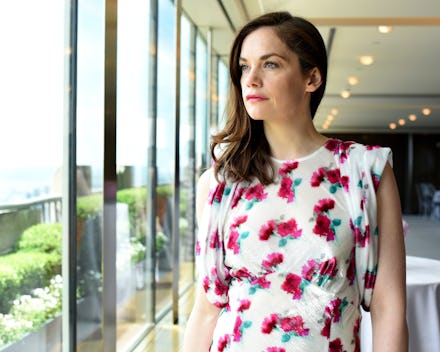Ruth Wilson's exit from 'The Affair' proves nude scenes are still a minefield for misconduct

Ruth Wilson, the star of Showtime drama The Affair, shocked people when she abruptly quit the Emmy-nominated show before its final season, in the summer of 2018. When reporters pressed her for an explanation, she demurred.
"It isn't about pay parity, and it wasn't about other jobs,” Wilson told The New York Times that August. “I'm not really allowed to talk about it,” she said, directing the reporter to showrunner Sarah Treem. “There is a much bigger story,” Wilson added.
To get to the bottom of what happened, The Hollywood Reporter interviewed numerous insiders, and on Wednesday it published the untold story of why Wilson left The Affair. The actress, who is restrained by an NDA, knew her role on the adult drama would involve showing some skin, but she felt the frequency and nature of her nude scenes were gratuitous. "Why do you need to see me and not more of him?” one THR source said they heard Wilson ask in reference to a male co-star.
The production team was also reportedly sloppy about protecting actors’ privacy on a number of occasions. "There sometimes were people there who didn't need to be, or the monitor was in plain view," an insider told THR. Another source alleged that a complaint was raised after a monitor was left on and someone not involved with the production was able to watch them shoot an on-location sex scene.
Wilson finally negotiated her exit from The Affair after a shocking account of a drunken run-in with the show’s executive producer and frequent director Jeffrey Reiner was published on the now-shuttered website Lenny Letter in 2016. Allegedly, Reiner crossed paths with Jenni Konner and Lena Dunham in the Hamptons and tried to persuade the Girls star to have dinner alone with Wilson, to convince her to “show her tits, or at least some vag” on his show.
Then, Reiner allegedly pulled out his phone and showed off a photo of Maura Tierney, another star of The Affair, with a nude male actor’s penis near her face. Evidently, it was meant to prove to Dunham the show had an equal male-to-female nudity ratio.
Wilson raised a complaint with Showtime in early 2017 alleging The Affair was a “hostile work environment,” and the network’s parent company CBS opened an internal investigation sometime after. According to THR, the Reiner incident gave the actress the leverage she needed to negotiate her exit from the show. She reportedly received a substantial payout, shot all her scenes in the fourth season early, and refused to share a set with Treem.
That same year, Showtime settled a separate lawsuit with Wilson’s body double, who stepped in for the actress when she objected to a sex scene. The woman said she was fired for confronting a male assistant director who described her on a call sheet as “Allison Sexytime Double.”
The problems that plagued Wilson and other cast members of The Affair are shocking and unprofessional. They also could’ve been avoided entirely if Showtime, and the film and TV business at large, had implemented common-sense practices to protect performers.
In the #MeToo era, the need for these safeguards is increasingly obvious — and change is happening, albeit slowly. Directors UK, the British screen directors guild, issued first-of-its-kind guidelines in November for filming nude and simulated sex scenes to prevent unprofessional conduct on set. And Showtime did employ an intimacy coordinator on The Affair’s final season, but not until after Wilson had already left the show.
Wilson is hardly the only actress to feel violated by the film and TV industry’s sense of entitlement to her body. Game of Thrones star Emilia Clarke, who was often required to do nude scenes, confessed in an interview on Dax Shepard’s podcast that she’d “cry in the bathroom” sometimes beforehand.
The guidelines issued in the UK are an important step, and the US could use an equivalent. Susanna White, the film committee chair for Directors UK and a BAFTA-winning director, explained to Variety why safe and respectful working environment on set are so necessary: “We are all here because we want to tell compelling and impactful stories,” she said, “and no member of a cast or crew should ever be put in a position where they feel unsafe, exploited or mismanaged – especially when making sensitive material.”